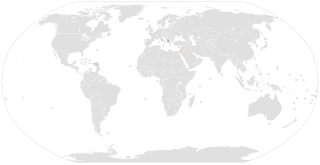| |||||
| Decades: | |||||
|---|---|---|---|---|---|
| See also: | Other events of 1999 List of years in Albania | ||||
The following lists events that happened during 1999 in Republic of Albania .
| |||||
| Decades: | |||||
|---|---|---|---|---|---|
| See also: | Other events of 1999 List of years in Albania | ||||
The following lists events that happened during 1999 in Republic of Albania .

The prime minister of Albania, officially the prime minister of the Republic of Albania, is the head of government of Albania. The office of the prime minister is a core institution in the politics of Albania formed after the Albanian declaration of independence on 28 November 1912. Since that time, the nation has navigated a dynamic political evolution spanning distinct periods, encompassing a monarchy, a communist regime and the eventual democratic order. In 1912, Ismail Qemali was inaugurated as the first prime minister of Albania, guiding the nation toward sovereignty amidst the complex conditions in the Balkans. In 1944, Enver Hoxha implemented a radical change in government, transforming Albania into an authoritarian and isolationist communist regime. In 1991, the nation transitioned into a democracy that marked a notable shift, when Fatos Nano emerged as the first post-communist prime minister of Albania.

The University of Tirana is a public university located at the central borough of Tirana 10 in Tirana, Albania. It was established as the State University of Tirana (SUT) in 1957 through merging of five existing institutes of higher education.

Pandeli Sotir Majko is an Albanian socialist politician. He served twice as Prime Minister of Albania; once from 1998 to 1999, and again in 2002.

Skënder Gjinushi is an Albanian politician and academic. He has served in several high-ranking positions in the Albanian government, including as Speaker of Parliament and Deputy Prime Minister. He founded the Social Democratic Party of Albania and served as its chairman from 1991 to 2019. He is currently serving as the president of the Academy of Sciences of Albania.

Ilir Rexhep Meta is an Albanian politician. He served as the president of Albania from 24 July 2017 to 24 July 2022.
In 1991, the Socialist Party of Albania, with specific social democratic ideology took control of the country through democratic elections. One year later the Democratic Party of Albania won the new elections. After 1990, Albania has been seeking a closer relationship with the West. What followed were deliberate programs of economic and democratic reform, but the implementation of capitalism led to the proliferation of pyramid schemes. Chaos in late 1996 to early 1997, as a result of the collapse of these pyramid schemes, alarmed the world and prompted the influx of international peacekeeping forces. In 1995, Albania was accepted into the Council of Europe and requested membership in NATO and is a potential candidate country for accession to the European Union. The workforce of Albania has continued to emigrate to Western countries, especially Greece and Italy.

Albania has recognized Israel as a state since April 19, 1949. Diplomatic relations between the countries were established on August 19, 1991. Albania has an embassy in Tel Aviv and Israel has an embassy in Tirana.

The 2011 Albanian opposition demonstrations were a series of Antigovernment protests in cities around Albania following 18 months of political conflict over alleged electoral fraud by the opposition. A video surfaced which portrayed the deputy prime minister arranging a corrupt deal with the minister of economy. The public outcry over the video resulted in the resignation of the deputy prime minister, Ilir Meta. A demonstration was called by parliamentary opposition parties, which include the Socialist Party and the Unity for Human Rights Party. These were called on 21 January in order to protest the alleged corruption of the Albanian government as well as widespread unemployment and poverty in the country.
The following lists events from the year 2011 in Albania.
The following lists events that happened during 2010 in Republic of Albania.
The following lists events that happened during 2009 in Republic of Albania.
The following lists events that happened during 2004 in Republic of Albania.
The following lists events that happened during 2002 in Republic of Albania.
The following lists events that happened during 2001 in Republic of Albania.
The following lists events that happened during 2000 in Republic of Albania.
The following lists events that happened during 1998 in Republic of Albania.
The following lists events in the year 2017 in Albania.
Events from the year 2020 in Albania.

The Second Government of the Prime Minister Ilir Meta was the 60th Government of the Republic of Albania which was officially mandated by President Rexhep Meidani on 7 September 2001. After the 2001 election, the alliance led by the Socialist Party won the majority for the second time in a row and managed to create a post–electoral coalition of 86 seats in Parliament to form the new government.

The Majko II Government was the 61st ruling government of the Republic of Albania, led by prime minister Pandeli Majko. It was officially mandated by president Rexhep Meidani on 22 February 2002. After the 2001 parliamentary elections, the alliance led by the Socialist Party won a seat majority for the second consecutive time and managed to form a government headed by Ilir Meta but due to internal conflicts within the party, Meta was forced to offer his resignation on 29 January 2002. Majko managed to persuade most of the party hierarchy, including its chairman Fatos Nano, to form a new government, although as it turned out, for the same reasons as the Meta II Government, he offered his resignation a few months later on 25 July 2002.